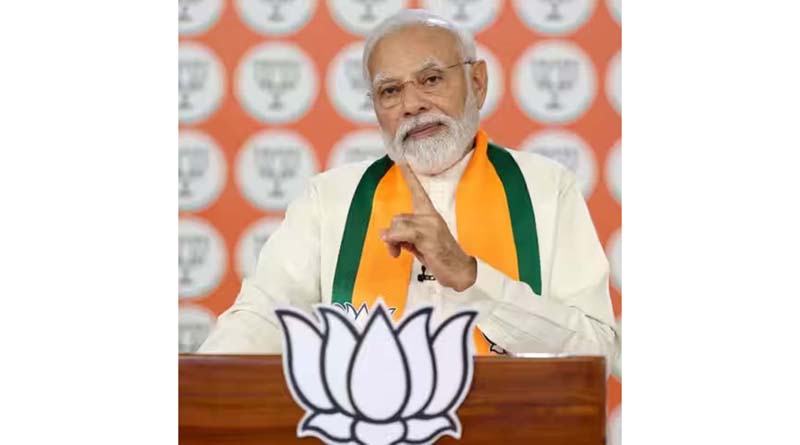‘33,000 representatives were elected in Panchayat polls’
Excelsior Correspondent
JAMMU, Aug 7: Prime Minister Narendra Modi today referred three-tier system of Panchayati Raj established in Jammu and Kashmir for the first time saying J&K is the biggest example where democracy has been established at the ground level after 2019, following the abrogation of Article 370 that granted special status to erstwhile State.
Addressing two-day regional Panchayati Raj Council held in Haryana, Modi took a dig at the Congress saying for over four decades after the country’s independence, there were no efforts to strengthen the Panchayati Raj Institutions in the country.
“For four decades after independence, the Congress did not understand that how necessary it is to implement the Panchayati Raj system in the villages. The District Panchayat system that was formed after this, it was left to its own fate during the Congress rule.”
“During the Congress regime, no concrete efforts were taken to strengthen the Panchayati Raj system. Maximum work remained limited to figures and documents. Jammu and Kashmir is the biggest example. In the year 2019, after the abrogation of Article 370 for the first time Gram Panchayat and district level elections took place in which over 33,000 local public representatives have been elected. For the first time democracy got established there on ground level,” the Prime Minister said.
It may be mentioned here that elections to Panchayats and Municipalities were held in Jammu and Kashmir in October-December 2018 during the President’s rule after several years.
For the first time, elections were completed to all three tiers in Jammu and Kashmir with Block Development Council (BDC) polls in 2019 and District Development Councils (DDCs) in 2020 after abrogation of special status of Jammu and Kashmir on August 5, 2019 and bifurcation of erstwhile State into two Union Territories of J&K and Ladakh.
The elections are again due in October-December this year as both Municipalities and Panchayats will be completing their five-year term.
Modi further said that after 2014, the BJP Government has worked a lot to strengthen Panchayati Raj and local Swaraj and for Panchayati Raj bodies a provision of over Rs 2 lakh crore had been made which is three times in comparison to the last Government.
The Prime Minister also urged party workers to take the benefits of the Panchayati Raj system to the last person standing in the last line of society.
“As a representative of BJP, you have to take the benefits of the Panchayati Raj system to the last person standing in the last line of society. I would request all of you that you should go and stay at some small place in your area for two nights a week and sit with the people there”.
“Today the Central Government is working with the target of 100 percent saturation of every scheme. This is possible only when we achieve this goal in every village,” he said.
“And when we are able to achieve 100 percent coverage of beneficiaries, then ‘jativaad, parivarvaad, mera-tera’ (casteism, nepotism and favouritism) do not remain, there is no scope of corruption and in real sense social justice is there,” he said.
During the past nine years, several schemes have been started for farmers, he said, adding such a system has been created for the farmers from seed to market which reduces the cost of farming and increases the income.
“In 2019, when we started PM Kisan Samman Nidhi, people said it was because of polls we were doing it. Modi’s guarantees are not electoral promises. When Modi gives his guarantee, he translates them into reality on the ground,” he said.
Under the PM Kisan Samman Nidhi, Rs 2.60 lakh crore has been deposited directly in farmers’ accounts.


